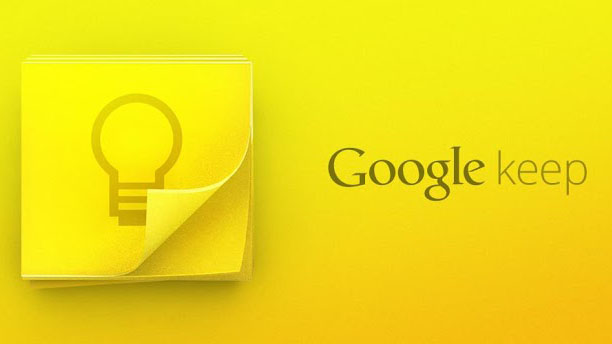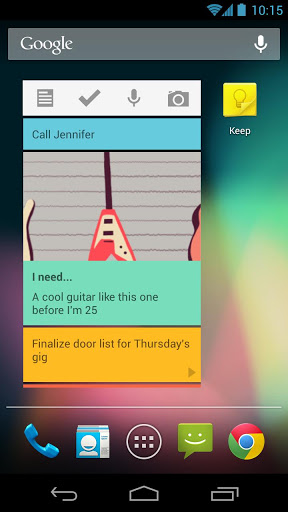Google Keep vs Evernote vs Apple Notes
Who can remember everything for you?

Google never saw a good idea it didn't want to emulate, and this time it's got the photocopiers set to Evernote: the new Google Keep is an Android app with cloud-based syncing to keep tabs on your thoughts and photos.
But it's entering into a competitive market, with stacks of productivity apps in the Google Play store. Is Keep good enough to rival the apps it's clearly inspired by? Could the web app tempt iOS users away from the stock iOS apps? Let's find out.
Google Keep vs Evernote vs Apple Notes: compatibility
Keep is available in three parts: an Android app, which you use to manage your notes; an Android widget for Jelly Bean, which provides ultra-fast access to those notes on your home screen; and as part of the web-based Google Drive at drive.google.com/keep.
Google Drive hasn't got a Keep button yet, but that's due next week. We'd expect lots of third-party apps to add support for Google Keep too, although that hasn't happened yet.
The web-based version is very basic, but then so is Apple's iCloud for notes and reminders: while it's possible to access them via the web, it's not something you'll want to do very often, if at all. You'll have a much more pleasant time if you use iOS and OS X's Reminders and Notes apps with iCloud syncing them in the background.
If you want the widest compatibility, Evernote's the one to go for. It's not one app but an ecosystem: the main Evernote app takes care of multiple kinds of notes, but there are task-specific apps too: Hello (iPhone, iPod touch and Android) for keeping details of people, Skitch for sketches, Evernote Food for - yes! - food.
The core Evernote app is available for pretty much anything: PC, Mac, iOS, Android, BlackBerry and even WebOS, and third party apps expand Evernote's features to other devices such as Sony's Reader hardware.
Sign up for breaking news, reviews, opinion, top tech deals, and more.
Google Keep vs Evernote vs Apple Notes: features
Of the three different offerings, Apple's is the most basic: Notes is a very simple document editor that supports images and basic file attachments, and while Reminders does support location-aware tasks that's about it. The Keep app doesn't support location-based notes or content tagging yet, but it does offer automatic transcription of voice notes and a colour coded birds-eye view of all your notes (which looks rather like Windows Phone, or the Pinterest app).

Evernote doesn't do reminders but compatible third-party apps do, and in addition to notes it has Stacks, which you can use to organise your stuff into different categories. It can store and search notes by location or by tags, supports audio as well as images and rich text, offers dictation in iOS and Android and supports file attachments too.
You can also create new Evernote items by email, and Evernote integrates with IFTTT, so for example you can create a new Evernote note whenever you star an item in Google Reader or check in somewhere in Foursquare.
Evernote also has The Trunk, an online app store of Evernote-compatible apps such as Receipts HD for tracking expenditure, Penultimate for storing handwritten notes, Scalar for calculations and so on.
Google Keep vs Evernote vs Apple Notes: price
Keep, Notes and Evernote are all free, but Evernote also offers a premium version that delivers more power. Premium users get the ability to search inside PDF attachments, making Evernote a handy tool for travellers and business users, and they can share notebooks for others to edit.
Premium also offers Note History, which keeps track of changes, but the most important difference between free and paid-for is that Premium users get 1GB of uploads per month instead of 60MB. If you're a camera-happy note taker, you'll burst through the free version's upload limit in ten minutes. Google Keep has no such limit, and iCloud is based on storage space (5GB for free users) rather than data use.

Contributor
Writer, broadcaster, musician and kitchen gadget obsessive Carrie Marshall has been writing about tech since 1998, contributing sage advice and odd opinions to all kinds of magazines and websites as well as writing more than twenty books. Her latest, a love letter to music titled Small Town Joy, is on sale now. She is the singer in spectacularly obscure Glaswegian rock band Unquiet Mind.